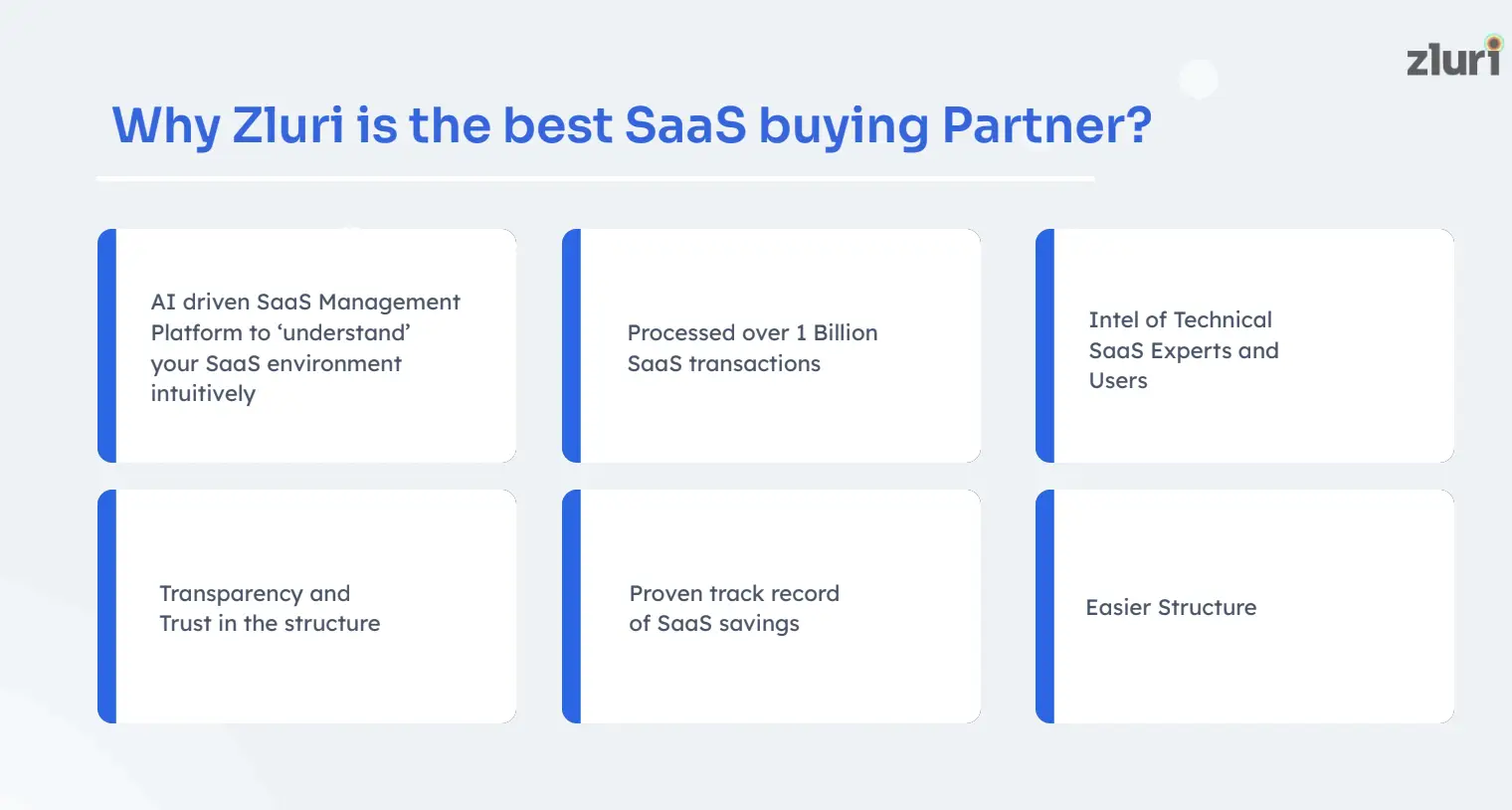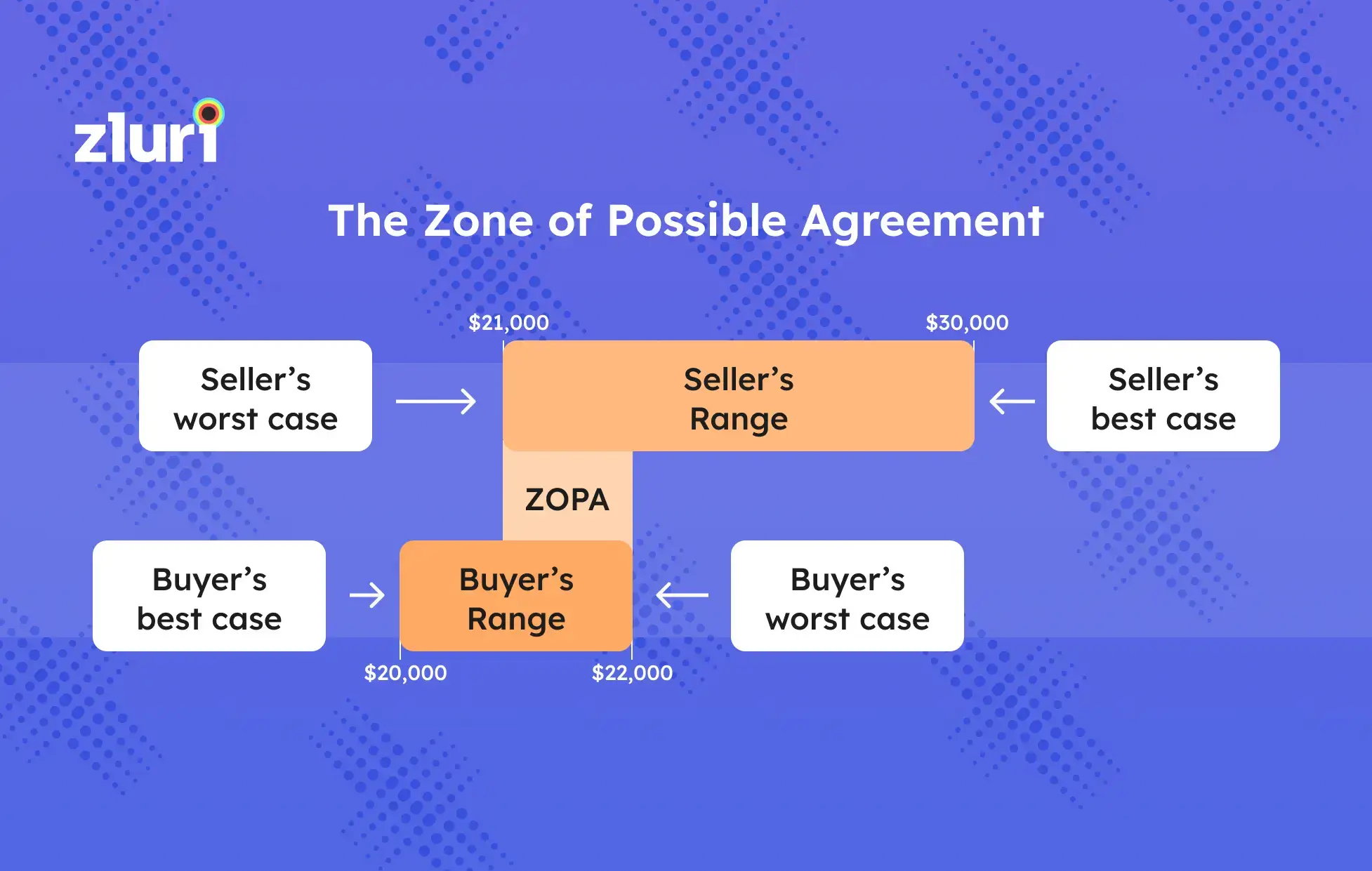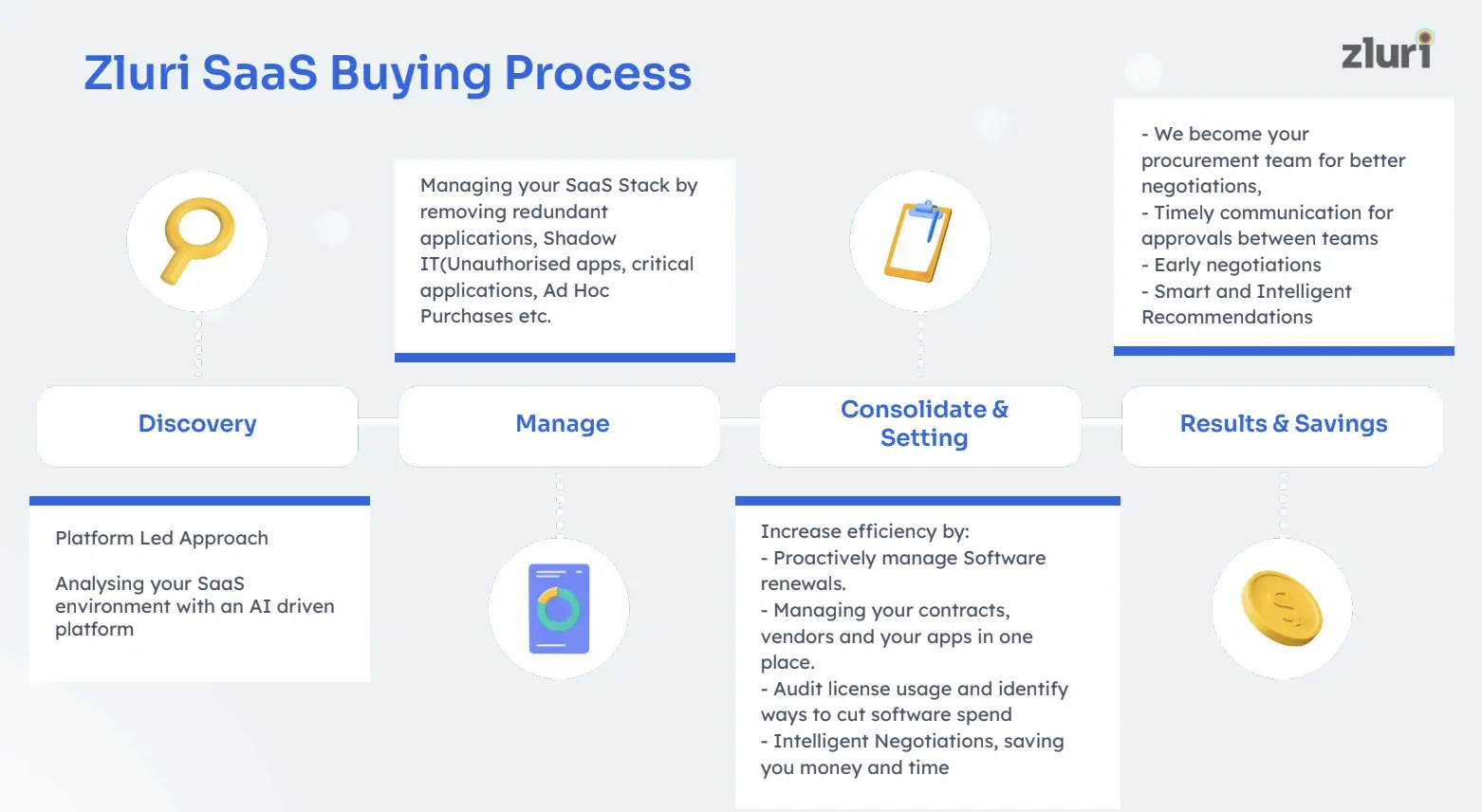Vendor Management
• 8 min read
6 Key Considerations for Effective Vendor Assessment
28th September, 2023
SHARE ON:
Ensuring a reliable vendor partnership requires a comprehensive vendor assessment. As a procurement manager, you can make informed decisions, establish trust, and maximize value by decoding the intricacies of vendor assessment and uncovering the key considerations for success. Let's explore the critical factors you should look out for.
By conducting a comprehensive vendor assessment, you can better understand the vendors' capabilities, assess their commitment to data security, gauge their responsiveness in resolving challenges, and ultimately ascertain whether they align with your strategic objectives or not. Let’s explore the top factors for effective vendor management.
The Top Critical Factors to Consider for Effective Vendor Assessment
By carefully considering these critical factors during your vendor assessment, you can make informed decisions and forge strong partnerships that contribute to the success of your business. Remember that each organization's specific needs may vary, so adapt and prioritize these factors based on your unique requirements.
1. Establishing requirements and desired results
Assessing vendors is crucial in any procurement cycle, ensuring that you make informed decisions when selecting vendors. To effectively evaluate vendors, defining your requirements and desired outcomes is critical.
Defining your requirements involves understanding your organizational needs and identifying the necessary features and functionalities that the vendor must possess to meet those needs. This step is essential as it provides a clear framework for evaluating vendors and helps to prevent the selection of vendors who may not be able to meet your specific needs.
Once you have identified your requirements, evaluating vendors based on their ability to meet those needs is important. This evaluation should focus on the vendor's track record, experience, and ability to deliver the required features and functionalities. By doing so, you can ensure that the selected vendor can provide a solution that meets your specific requirements rather than a generic one-size-fits-all approach.
Moreover, defining your requirements ensures that you purchase a solution that will be actively utilized rather than becoming wasted resources. A vendor may provide a range of impressive features and functionalities, but if they do not align with your business needs, they will likely be underutilized or not utilized at all. This can waste valuable resources, such as time and money, and lead to inefficiencies in your organization.
2. Pricing & quality of the SaaS app
When purchasing SaaS applications, two crucial factors to consider are pricing and product/service quality. Regarding pricing, aim to get the best value for the lowest cost. Request bids from multiple vendors and be cautious of significantly lower estimates, as they may indicate subpar services or hidden fees not included in the quote.
Review each bid carefully, ensuring that all costs, including administrative expenses or maintenance fees, are clearly stated. Pay close attention to the fine print to identify any hidden charges. It may be worth investing in legal assistance to review complex contracts and clarify any unclear language.
Communicate your organization's needs clearly to vendors to receive accurate bids. Stick to your original goals and requirements to avoid unnecessary expenses from choosing an application that exceeds your needs or opting for a subpar solution that may result in greater costs in the long run.
When assessing product or service quality, prioritize it over price. Request previous work samples, especially for project-based services like remodeling office space. Visiting completed projects in person can better understand the vendor's work quality and if it meets your expectations.
For service-based vendors, inquire about employee training. Well-trained service employees are essential for providing the level of service your customers expect. If the vendor does not emphasize training, it may be a cause for concern.
3. Vendor performance record
A vendor performance record includes information such as the vendor's history, reputation, and customer feedback based on their past performance. It is typically used to evaluate their ability to meet the needs and expectations of their customers.
When evaluating a vendor's performance record, looking beyond their sales pitch and marketing materials is essential. Instead, take a deep dive into their case studies, testimonials, and customer feedback to better understand their expertise and reputation in the industry.
Reviewing case studies can give you a clear picture of the vendor's ability to deliver high-quality services that meet customer expectations. It's also an excellent way to gain insight into their processes, capabilities, and areas of expertise.
To make an informed decision about a vendor, consider testimonials from satisfied customers. Vendors with a good track record of customer satisfaction and high-quality products or services are preferable. Positive feedback indicates that the vendor is dependable and trustworthy.
Additionally, it's important to review customer feedback, both positive and negative. This gives a balanced view of the vendor's performance. Pay attention to how the vendor responds to negative feedback and if they take steps to resolve customer concerns. This will help gauge their commitment to addressing any issues that may arise.
4. Security & compliance
When assessing vendors, prioritize their security measures. Look for those who employ data encryption and robust access controls to protect sensitive information and prevent unauthorized access. This is especially important due to rising security breaches and data privacy regulations.
Moreover, evaluating their vulnerability and penetration test results is important to ensure they continuously monitor and identify potential vulnerabilities in their systems. Finally, you should review their incident response procedures to understand how they handle security incidents if they occur.
In addition to security, compliance is also critical. Vendors should comply with relevant regulations and industry standards to ensure that they meet your organization's standards. This could include regulations such as GDPR or CCPA, which govern data privacy, or industry standards such as SOC 2, which evaluate the vendor's security, availability, and confidentiality controls.
Before choosing a vendor, conducting a thorough audit is essential to ensure the vendor meets your organization's compliance standards. This could include reviewing their compliance documentation, such as their policies and procedures, as well as conducting interviews with their staff to ensure they understand the importance of compliance.
By prioritizing security and compliance in your vendor evaluation process, you can minimize the risk of security breaches and protect your organization's data. Ultimately, selecting vendors prioritizing security and compliance will give your organization the peace of mind that your data is protected and you are working with a reputable and trustworthy partner.
5. Service level agreements (SLAs)
In the competitive procurement realm, unparalleled service is non-negotiable. Here enters the spotlight: SLAs. These powerful contractual frameworks shape the vendor's commitment to providing exceptional service availability, performance, and support. As procurement experts, you're well aware of the pivotal role that dependable service plays in elevating your organization.
Thus, mastering SLAs becomes the gateway to unlocking vendor excellence.
Customizing SLAs for Tailored Solutions: One size does not fit all, especially concerning procurement. That's where the art of customizing SLAs comes into play. By meticulously reviewing vendor SLAs, you can determine how their service commitments align with your organization's unique requirements.
This tailored approach allows you to forge partnerships seamlessly integrating with your operations, facilitating smoother workflows, and maximizing efficiency.Elevating Performance and Reliability to New Heights: Performance and reliability are non-negotiable. By setting clear expectations for service availability, response times, and performance benchmarks, SLAs enable you to select vendors with a proven track record of excellence.
This results in enhanced operational stability, reduced downtime, and significantly boosts your organization's productivity.Ensuring Unwavering Support for Seamless Operations: With SLAs, you gain insights into the support services and response times that vendors commit to providing. This knowledge empowers you to identify partners equipped with the necessary expertise and efficiency to handle your organization's unique support requirements.
SLAs lay the foundation for seamless operations and heightened customer satisfaction by ensuring prompt issue resolution and minimizing downtime.Mitigating Risk and Promoting Accountability: Risk mitigation is a paramount concern in procurement, and SLAs play a crucial role in addressing this challenge. A well-crafted SLA includes remedies, penalties, and compensation provisions in case of service-level breaches. This not only holds vendors accountable but also safeguards your organization's interests.
With SLAs as your shield against potential disruptions, you can confidently navigate the complex procurement landscape, ensuring the continuity of your operations.
6. Technological advancements and integration capabilities
When evaluating vendors, assessing their technical capabilities and determining if they can keep pace with the rapidly evolving tech landscape is essential. By partnering with technologically proficient vendors, procurement teams can ensure they are investing in long-term solutions that won't become obsolete quickly.
Consider the following factors when assessing a vendor's technical advancement:
Innovation and Adaptability: Evaluate how the vendor embraces innovation and adapts to emerging technologies. Are they continuously investing in research and development? Do they have a track record of successfully implementing cutting-edge solutions?
Scalability and Flexibility: Determine if the vendor's offerings are scalable and flexible enough to accommodate your business's evolving needs. Can their solutions accommodate growth, increased transaction volumes, or changing market conditions?
Integration capabilities are paramount for procurement teams as they seek to streamline operations and foster collaboration across different systems and applications. By evaluating a vendor's services integration capabilities, you can make sure that data flows smoothly and eliminate the need for manual workarounds.
This improves efficiency and saves time. A straightforward and secure integration process is key to harnessing the full potential of your procurement ecosystem.
Focus on the following aspects when assessing a vendor's integration capabilities:System Compatibility: Determine if the vendor's services can seamlessly integrate with your existing systems, such as enterprise resource planning (ERP) software, customer relationship management (CRM) systems, or supplier management platforms. Compatibility ensures a cohesive workflow and minimizes disruptions.
API Documentation and Support: Assess the quality and comprehensiveness of the vendor's application programming interfaces (APIs) documentation. An extensive and well-documented API allows for easy understanding and integration with your organization's systems. Additionally, evaluate the level of support the vendor provides in case of integration-related issues.
Platform and Technology Support: Consider the range of platforms and technologies that the vendor supports. Are they compatible with the technologies your organization relies upon? Whether it's cloud-based solutions, mobile applications, or emerging technologies like blockchain, ensure the vendor can integrate seamlessly.
Choosing vendors who can keep pace with technology and seamlessly integrate with existing systems ensures a future-proof procurement ecosystem, driving efficiency, collaboration, and success.
Further, you can opt for a SaaS management platform such as Zluri for effective vendor assessment.
How Zluri Helps with Effective Vendor Assessment
Zluri, the industry leader in SaaS procurement services, offers a comprehensive suite of solutions that empowers procurement managers with the tools, expertise, and insights needed for successful vendor assessment. Let's explore how Zluri revolutionizes the vendor assessment process and helps you achieve optimal outcomes:

Streamlined vendor selection
Zluri takes the guesswork out of vendor selection by providing deep insights into your organization's SaaS landscape, helping identify the most suitable vendors for your specific requirements.
By analyzing billions of SaaS transactions, Zluri possesses a vast database of benchmark data on pricing, licensing options, and regional variations. This allows you to make data-driven decisions and negotiate the best possible deals.
Negotiation expertise
Negotiating with vendors can be a time-consuming and challenging task. Zluri acts as a trusted partner and negotiates on your behalf, saving you valuable time and effort. With extensive market knowledge and experience, Zluri's negotiation experts ensure that you secure favorable pricing and contract terms.
Zluri provides two key strategies: Zones of Possible Agreement (ZOPA) and Best Alternative To a Negotiated Agreement (BATNA).
With Zluri's advanced analytics, you swiftly identify the ZOPA, determining the maximum price you're willing to pay. This helps you negotiate within budget and align with company goals, avoiding overspending. This enables you to gain a competitive edge and secure win-win outcomes.

Zluri simplifies BATNA by effortlessly comparing quotes from multiple suppliers. Evaluate pricing options upfront to select the most advantageous deal. Ensure compliance, prevent maverick spend, and gain market insights for well-informed decisions and maximum value.
By leveraging its expertise and strong vendor relationships, Zluri maximizes the chances of securing the most advantageous agreements for your organization.
Transparency and trust
Zluri values transparency and trust in all its interactions. Acting as an extension of your procurement team, Zluri maintains clear communication with vendors on your behalf. Using your company's email for negotiations ensures full transparency within your organization. This approach fosters trust and strengthens vendor relationships, enabling smoother negotiations and better outcomes.
Data-driven insights
Zluri's access to extensive market data gives a unique advantage in providing data-driven insights. It possesses benchmark data on SaaS prices, enabling the identification of fair pricing for different types of SaaS apps and licenses.
This information helps you make informed decisions and negotiate contracts based on industry standards and market trends. By harnessing the power of data, Zluri ensures that you secure the best possible pricing and terms.
Optimization and cost savings
Zluri helps optimize your SaaS stack by analyzing overlapping features between multiple applications. It identifies redundant or duplicate applications, enabling you to eliminate unnecessary costs and streamline your software environment.
Additionally, Zluri assists with auto-renewals, license downgrades, and removing unutilized licenses, further optimizing SaaS spending and driving significant cost savings.
Comprehensive support
Zluri offers end-to-end support throughout the vendor assessment process. Its four-step buying process ensures a systematic and efficient approach from initial discovery to contract closure. It discovers your organization's entire SaaS stack by using 5 discovering methods: single sign-on & IDP, finance & expense management systems, API integration, optional agents (optional), and browser agents (optional).
This helps you manage your SaaS stack, consolidate data, and provide proper documentation for each contract. With Zluri's support, you gain complete visibility and control over their SaaS ecosystem.

With Zluri, you can effectively manage vendor relationships, gain better control over your SaaS ecosystem, and achieve greater ROI from your software investments.
Book a demo now and find it out yourself.
Related Blogs
See More
Subscribe to our Newsletter
Get updates in your inbox
